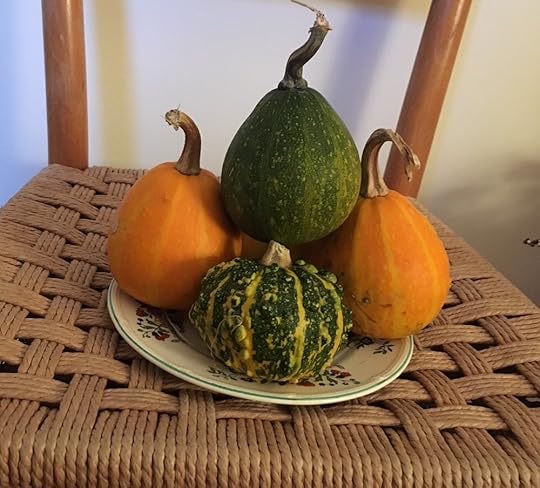Sarah Clarkson's Blog, page 4
January 22, 2018
Wishes Like Ships
Because of a death in Thomas' extended family (he is half Danish), we changed our flights so that we could attend the funeral with his family in Copenhagen. Thus, on the first, windy weekend of the new year I found myself sitting in a small, medieval church on the outskirts of the city. The hope and love suffusing the service was tangible, so much so that not knowing the language wasn't a real barrier to participation. But my eyes did wander a bit during the sermon; up into the white arches with medieval etchings of saints and angels, out the simple arched windows, and up the aisle to where a sturdy, full-rigged model of a perfect little ship hung over the heads of the congregation. Yes, a ship. This is, Thomas informed me, common in Danish churches, a vivid symbol that embodies the mission and hope of the church as it sails through the rough waters of the fallen world, offering shelter and salvation to any who enter its refuge.
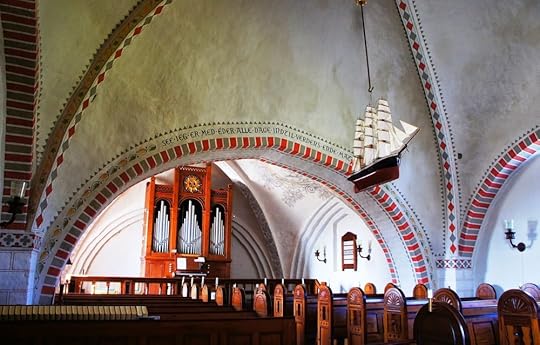
The sight of that little ship captured my imagination and it has greatly shaped the first post of the year I want to write to you here. I love to start a new year here on the blog with a list of wishes; the graces and joy I hope will come your way in the following year. I don't think the list usually changes that much; I'm always hoping you'll find beauty in the ordinary, a sense of wonder, the joy of friendship, the companionship of great books. But this year, the wishes that formed in my heart are a little different, shaped by the sobriety of the funeral, by my own pondering of the little life that is growing in me (and the Braxton Hicks contractions that have made a fierce appearance and forced me to rest), and my sense of this war-torn, noisy world as a pretty wild place in which to raise a little one, or be a lover, or hope in ultimate redemption.
To that end, here's a shorter list of three new year's wishes that are a little like ships, meant to carry you safely through the doubt and confusion, the turmoil and work of faithful life in a stormy and fallen world.
I wish you clarity with quiet.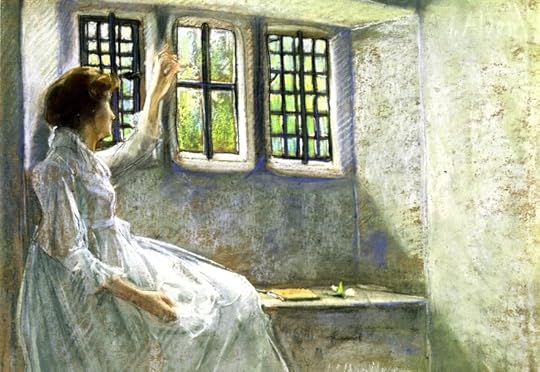
The Window Seat, by Julian Alden Neer
The din of the world seems louder to me in the past couple of years. If there's one thing I know after a study of theology, it's that there are at least 10 sides to every argument. But a scroll through Twitter will teach you the same (only there, its more like 100). We live in a world suffused by voices, cluttered with unceasing information, our minds almost inescapably crammed with competing opinions, causes, warnings, and claims. Further, we have to fight for quiet. I still haven't quite figured out my quiet time rhythm now that I'm married and mornings begin early (and let us not yet even consider what a newborn will wreak!) and the world around me thrums with music and voices and people's needs and deadlines I haven't yet met and headlines I don't know how to process. My wish for you then, and for myself, is that we will discover both by grace and choice, clean, clear moments of hush in which we can listen to the single and defining voice of Love within our hearts. I wish you the clarity that comes from a fresh grip on Scripture, even in a brief, snatched moment, that 'testimony of the Lord' himself that 'makes wise the simple'. I wish you the quiet not just of absent noise but of present Love as it grips you and you know it so that you do not have to be strong to decide or discern alone. The truth is that nothing (not even political debates or family entanglements) is too difficult for our lover God; may you remember that when the twitter feeds scream and your own heart rises in anguish. I wish you the psalmist's 'composed and quiet soul', resting against the breast of God as a child rests against the heart of its mother, not concerned with 'matters too difficult' but easy in the care that never leaves us to battle the storm alone.
I wish you defiant creativity.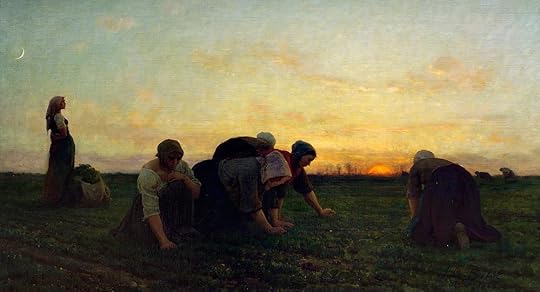
The Weeders, by Jules Breton. I love the women in Breton's paintings; hardworking, dancing round campfires, arm-in-arm, at prayer. They are full-hearted, full-bodied souls.
I sometimes think that if the voice of God is the one always saying 'let there be light', the voice of the devil must be the one that says 'there's only darkness'. I think these voices contend in our hearts every day, dealing not on the scale of cosmic creation but in human, daily experience. The darkness can seem so small scale - a weary heart, a lonely week, a sick body, an untended home - not worth the fight. We are slow to perceive that the coming of God's kingdom into the fallen world has much to do with the nit and grit of our daily struggle. But where else will the kingdom come? The Incarnation is all about God invading the smallest corners of human existence. Salvation invaded time and landed in the musty straw of a Bethlehem manger; it waits to invade our smallest moments as well - whether mine in the freezing morning air of my little Oxford house as I sit down (yet again) lest my bump tighten, and wonder if I will get anything done today - or yours in whatever little struggle or daily disaster you face. I wish you, my friend, a holy and fierce defiance of the voices that work to convince you that the darkness and discouragement just are. I wish you a fire-eyed creativity that looks into the shadow and commands it to be full of light. May you take hold of the same Holy Spirit that spoke creation into existence and in its power create... a new friendship, a spate of reading, a meal, a prayer, a moment of recognised beauty, a home that is a shelter. I wish you the vision to recognize that these tiny acts are the ones in which Love invades the fallen world moment by moment, that they are gathering into a great song, a flood of love that will restore and remake the cosmos.
And... I wish you laughter.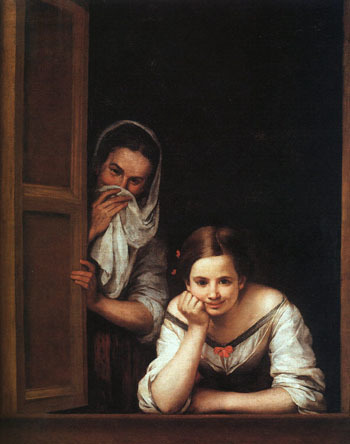
Two Women at a Window, by Bartolome Esteban Murillo. One of my favorite of his paintings. I love the impish fun.
That quickened, delighted laughter that is, in a single breath, an instant of disbelief engulfed by a moment of absolute assurance in the reality of joy as it seizes you in an unexpected gift, a glimpse of some beauty (like sunsets blazing or daffodils burgeoning), or the touch of a love so deep and real it turns the fallenness of the world on its head. I wish you good humor; the capacity to see the world in its enduring fun, in the childlike splendor of its small, funny, giggling-baby moments. And I wish you amusement at yourself. I'm pretty sure that among the many other things he has, God has laughter every day, because friends, humans are ridiculous and I believe God sees that as a downright precious thing. We're frail and noble in a single breath, we're epic in our loves and petty in our dislikes, we come in every variety of shape and size, hope and dream, and we bear in the broken clay of this earth and in our many eccentricities the image of deity. To laugh is to acknowledge the surviving glory of our creation, the utter depth of our need for redemption, the present, breathless grace of a perfect God coming to patch us back together and set us on our saved feet. In the immortal words of the wise Dr. Seuss: Humor has a tremendous place in this sordid world. It’s more than just a matter of laughing. If you can see things out of whack, then you can see how things can be in whack.
In sum, I wish you a strong sense of the sturdy ship of Love in which you're kept midst the roil of the worlds rough waters. I wish you joy in the voyage.
And a very happy new year!
December 24, 2017
Merry Christmas, friends!
(as they say in England).
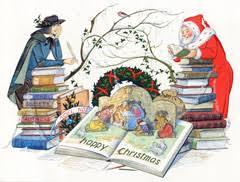
by Pauline Baynes (illustrator of the Narnia books)
My lovely readers and kindred friends,
As this Christmastide dawns, may love prepare a great, gracious space in your hearts as Christ comes to fill it with his radiant light and presence. May you feast heartily. Sing lustily. Love fiercely. Enjoy this celebration of Love come among us to the mighty hilt.
A few words to make your spirit bright indeed on this lovely day (discovered via Tasha Tudor):
No heaven can come to us unless our hearts find rest in today.
Take heaven!
No peace lies in the future which is not hidden in this present little instance.
Take peace!
The gloom of the world is but a shadow. Behind it, yet within our reach, is joy.
Take joy!
Life is so full of meaning and purpose, so full of beauty . . . that you will find earth but cloaks your heaven. Courage then to claim it, that is all! . . . And so I greet you, with profound esteem and with the prayer that for you, now and forever, the day breaks and the shadows flee away.
"Letter to a Friend" by Fra Giovanni, 1513
And, one of my favorite paintings of the Nativity (I got to see it in person in Florence!):
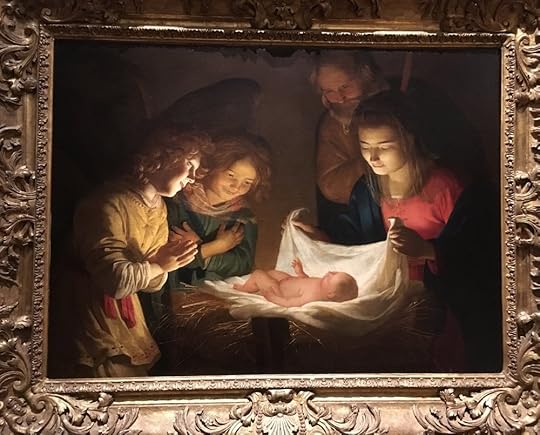
December 22, 2017
Touching Love
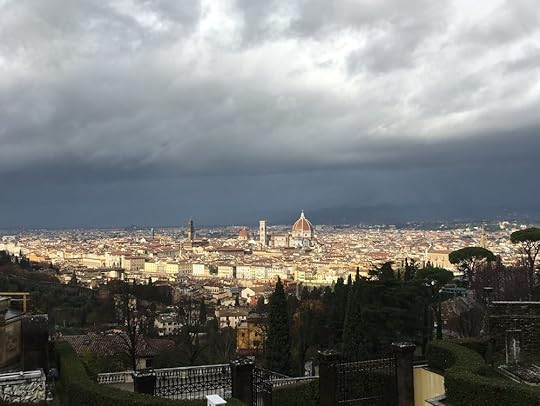
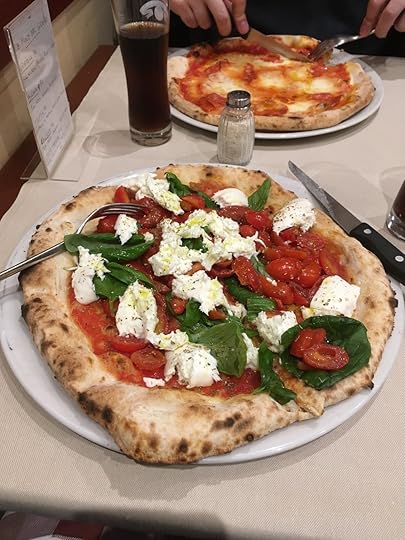
In the past two weeks, I have had two quite marvelous joys. First, snow in Oxford, loads of it, real, fluttering, wreathe-the-world-in-white-mystery snow and an early morning walk with Thomas through the unspoilt wonder to complete the gift. And second, a visit to Florence, a golden gem of a city whose art stole my breath (Caravaggio! Fra Angelico! Giotto!), whose colorful and luscious food definitely grew this belly a bit more, and whose friendly people took great joy in exclaiming upon said belly and the baby inside (the family orientation of the culture was a surprising delight).
I write to you now from the early morning hush of our in-between week of home time before we fly to the Netherlands for Christmas. I've been brooding on this post for two weeks and think I finally have it reduced to words. I am curled rather exhaustedly on the couch as I begin, a fitting start to this post. I'm accompanied by a very Charlie Brownish little Christmas tree whose homecoming involved the combined and rather strained efforts of myself and the most taciturn taxi driver I have ever encountered. Having dragged the tree into my living room and cut the netting, I discovered a lopsided little being with gaps so evenly spread that there was no way to conceal them. Idealistic me rebelled. Realistic (and pregnant) me sank onto the couch, drank a cup of (decaf) tea, then decked my little tree person in simple white fairy lights and a few storm-blue baubles.
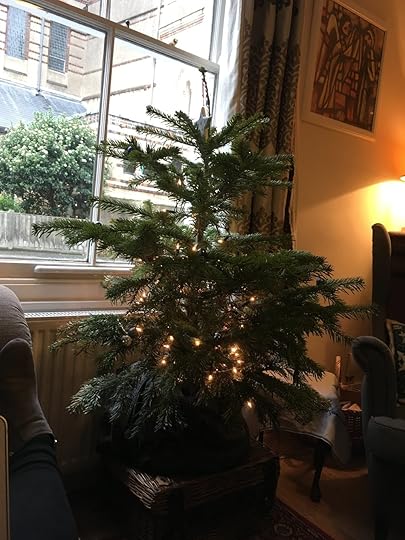
Now, I find the imperfection of my tree strangely comforting. We make cozy, slightly bedraggled companions in the early mornings when I drag myself out of bed to read some Isaiah aloud to my bump and listen to choral classics in the early, shivery quiet. Thomas is usually at morning prayer, a service we've both attended together for the past couple of years. These days, I just can't quite summon the energy, so I sit in the hushed mornings, trying to learn again how to rest. Mostly I try to pray my way through the thrumming worry that sits at back of my days as I process the changes in my body, my capacity to work, my sense of the vast unknown that lies ahead of a me that really likes to fell more in control than this.
I find it all surprisingly hard.
I am discovering how much I dislike to feel helpless. I've never been much good at the acceptance of my limitations but the fact that rest is hard for me is a surprise; as an introvert I love time alone, I'm not high energy, I'm a bit of a homebody who glories in the fact. But I am discovering that I feel almost threatened in this season by my own incapacity to work, to keep up the way of life Thomas and I have known in our first years of marriage, even my ability to concentrate or pray, or heck, be emotionally stable. I used to laugh at Goudge's description of a character whose husband grew used to the fact that in seasons of pregnancy she periodically became 'unstuck' and simply needed to weep.
I don't laugh anymore.
I sometimes want to weep myself. And as my energy wanes and this precious baby grows and I shift from three (nay, ten) years of intense writing or academic work, jobs on the side, and a full social schedule, to a space in which my mind and body must grow quieter in preparation for the new work and gift of my child, I find I am surprisingly afraid. I find I am threatened in my sense of self, my worthiness to receive love now that I am no longer able to do and provide quite as much as before.
Who am I when I am exhausted? When I cannot, for a season, fulfill my own ideals of what it means to provide for our home, or be in community, or work towards the writing that drives me, or be as emotionally stable as I desire? As an idealist, I think that the shape of my life is often a ceaseless reaching toward the embodiment of the beauty that I can imagine, the love I can see as possible, the laughter that could be kindled between friends, the worship I ought to give, the strength and peace I can bring to relationships. But who am I when I cannot reach for those goals?
And what does it mean to be loved when I cannot respond or give equally? How can Thomas like me when I am a barely contained and daily changing hurricane who finds laundry more overwhelming than ever? How can God respond to me when I cannot concentrate or pray for more than a minute together and often just don't want to pray at all? Perhaps more to the point, how can I love myself when I cannot be what I think I should be in order to be competent... and loved?
Questions, urgent questions, that have led me in the past weeks into a startling and lengthy excavation of my own ability to trust, to believe that love holds me when I can do nothing to deserve it. I'm always a little shocked to find how much of the Gospel I can grasp by intellect and how little I sometimes act as if its true. But I've been gently led into that difficult and luminous thing called trust, by lopsided Christmas trees, by Thomas' amused, profoundly gentle, and utterly faithful care, and by three moments of specific epiphany in which the sheer gift of Love, unmerited, unearned, just prodigally given to a frustrated me made Love a burning reality waiting only for my acceptance.
First, the challenge of a mentor. Early in my pregnancy this past summer, when these insecurities began to simmer, I spoke about them with a friend here in town, seeking some sort of means by which I could get back on top of my emotions and sense of stability. 'It sounds just like what I used to feel when I was learning to walk on a tightrope' laughed my former-acrobat-now-Anglican-priest-friend. I looked forward to similarly helpful metaphors in the spiritual techniques of balance I was sure would follow. But his next words were a challenge. 'What if you let yourself fall? Do you believe you will be caught? If you totally fall apart, if you weep or can't keep on top of house things or give way to anxiety, do you actually trust the love of your husband... and of God?'
Whoah.
Second, the whisper of the Holy Spirit. Last week, as we sat in a service of communion in our beautiful old church, I found myself praying before I went up to receive the bread and wine. My heart surged with a sense of wanting to give, to be more present, to honor the gift of Christ's presence, the fulness of the beauty around me, the deeper realization of God's redemption that I come to every year as I think about the Incarnation. What can I do, Lord, what can I give? The answer, this flutter of a voice speaking in my inmost heart: Just receive me. Open your hands. All I want is for you to let me give myself to you...
Third. Last. A painting by Caravaggio encountered in Florence. The Incredulity of Thomas, a scene in which the famed doubting Thomas is given the gift of having his frank, child-like desire to touch the scars of the risen Jesus, granted. I have always loved this story; notice, please, that Jesus doesn't rebuke Thomas. He fulfills his request, he urges him to doubt no more, he answers that stubborn, pragmatic desire by yielding his glorious self to the probing hands of a needy man.
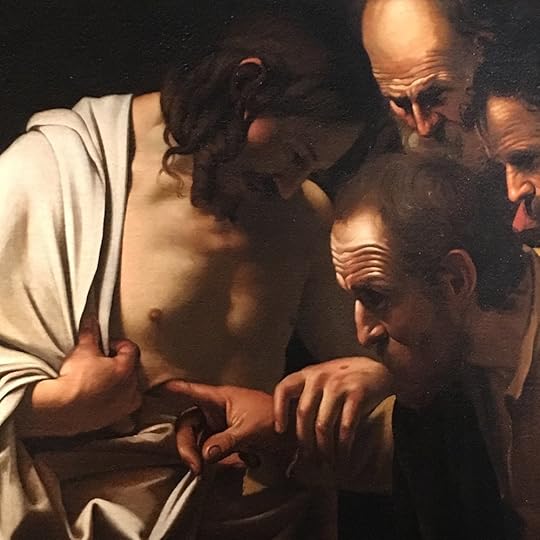
I could have stared at that painting for hours. It seemed to shimmer from its place in the narrow gallery (or maybe that was just the fact that I was getting teary). The longer I looked, the more I saw of myself in Thomas, and the more I understood of what real love is in studying the face of Christ. I see myself in the suddenly timid hand of this disciple who almost cannot dare to touch what has so generously come as the answer to his demand. I see myself in the wrinkled bewilderment of his face, the crouch of his awed shoulders. It's as if he didn't expect the extravagant answer. Now that Love is in reach he's almost afraid.
And in the face of Christ, in that tender, gentle face turned down to meet the lowered face of Thomas, I begin to understand something of a love that is a total givenness. A love that puts itself in the hands of needy humans, that does not deny but rather grants their whimpered requests for assurance, their fearful need to touch and see. I love the hand of Christ, guiding Thomas to actually take hold of what he has yearned to touch, the receive the assurance he craves and is now afraid to receive. I love the way Christ holds back his robe, baring his heart in total gift to those frail and faulty disciples, crowding round, hungry, desperate, curious.
Doubt no more.
Jesus' words aren't a rebuke, they are an invitation to Thomas to receive what is already given. To let Love come alive to him, to open his eyes and see what's already there, given totally into his hands
Doubt no more.
Those are the words that echo with me here in my small front room in the frosty mornings as I sit, a little lonely, a little timid, with Isaiah open on my lap, learning to know myself held by God's joyous, unstinting affection. The fear falls away as I begin to rest in its givenness, as this Love helps me to trust my frail self to Thomas' unfailing love, to that of my family, far away, to the friends who give and provide when I cannot. Those are loves I couldn't have earned to begin with. The idea that my own capacity to provide and perform made me lovable wasn't strength; it was actually doubt. And in my weakness, a helplessness that I begin to recognise as blessed, it begins to wash away.
I'm lifting my face with Thomas, reaching out a trembling finger. I'm learning to trust. To recognise the fulness of what's been given.
I'm really, truly touching love.
I guess all the change is pretty good after all...
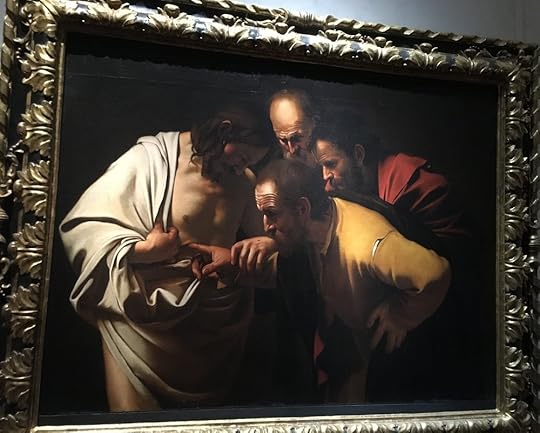
December 12, 2017
If I (Sarah) Was Your Oxford Tour Guide...
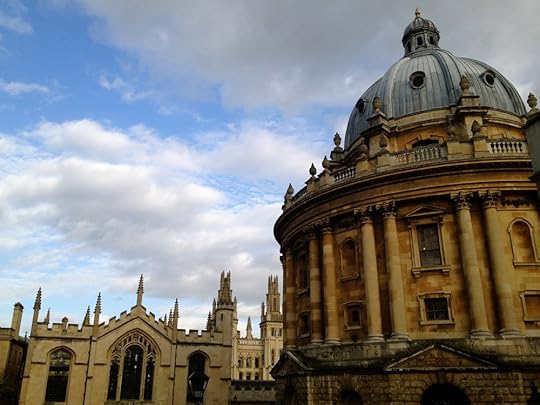
This is what we'd do.
Friends, this post is one of pure Oxfordian revelry, a bit of a Christmas treat to get you dreaming about a ramble round this dreamy old city. I've lived here over three years and when I pound the cobbles at dusk or in the early, autumn mornings, I often still feel the same in-drawn breath of joy. This city, with its cobbled lanes and golden-stoned nooks is a wonder of a place on earth (to use a Wendell Berryan term). It livens the sight and sparks the imagination.
I know that a delight in this city is something I share with many of you, and in the past couple of years I have received countless emails asking for details of my favorite Oxford activities and haunts as you planned your own adventures. So, I thought that on this freezing Tuesday I'd have a little fun and dream up the tour I'd take you on if we had two days in Oxford.
You can find lists and links of all the places, cafes, colleges, or restaurants described below at the end of the post (with a few extras added). I hope this brings a bit of fun and brightness to your day!
The adventure begins...
Day One: Classic Oxford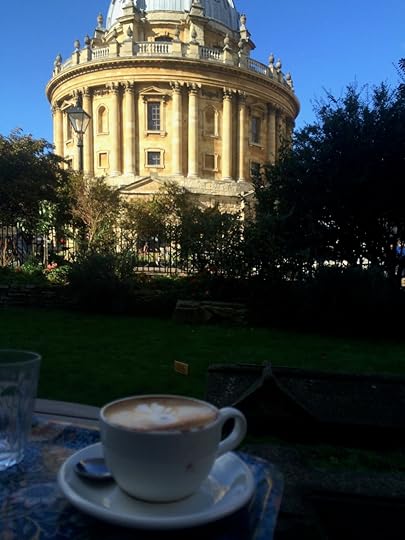
Vaults & Gardens
The morning would probably be chill, we would no doubt be scarved and booted as we began, with the sun just beginning to warm the old stone walls. We'd start with breakfast right down in the heart of Oxford at the 'Vaults and Gardens' cafe of University Church, from whose pulpit Cranmer was taken to die (the spot marked by a large black X in Broad Street) and C.S. Lewis preached his famous Weight of Glory sermon. Our official touring would begin with a climb to the top of the old church tower for a bird's eye view of the Oxford spires. But let us not start our adventure on empty stomachs! As any good hobbit knows, quests ought to open with at least a big pot of breakfast tea, some version of eggs, and I would add a big old Vaults & Gardens scone with as much cream as we could slather topped by homemade jam. Only then could we have enough energy to mount the narrow stone steps and soak in the glory of the (very possibly grey) morning.
From that splendid height, we'd look straight down upon the Radcliffe Camera, the iconic round building of the Bodleian Library (whose sea-green and sky-lighted upper galleries are my favorite study spot), and the courtyards of the further reading rooms beyond, our next destination. The Rad Cam is off limits to visitors, but the larger library gives fascinating tours of other parts of the complex maze of reading rooms and vaulted spaces. These are worth every penny. I've lived in Oxford for 4 years and I'd still go on one for the sheer historical insight, though I'd be sure to choose the one which included a glimpse of the Duke Humphrey room, one of the oldest in Oxford, with massive old manuscripts and eerie stained glass windows (the setting for the 'forbidden section' in the first Harry Potter film, if you are so interested).
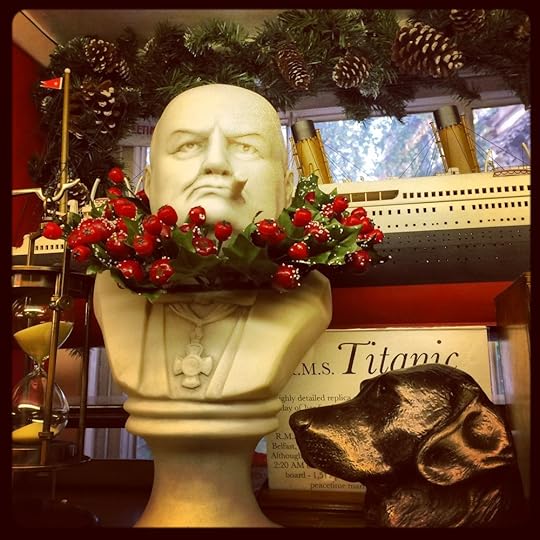
Scriptum
After a peek into the Bodleian gift shops (they have such fun, bookish treasures), we'd head up to Broad Street for a ramble round the famed Blackwell's Books, Oxford's best-beloved and immense old bookshop. From there, we'd go for a slight shopping and college detour down Turl Street, one of my favorite walkways, and I think, one of the most picturesque streets in Oxford. There, we'd pop into the Oxfam bookshop and hunt for a few used classics, we'd visit Scriptum, a stationary and curiosity shop whose leather-bound books, fountain pens, marionettes in the window, and be-wreathed British nobility always make me feel I've stumbled into a shop run by a good fairy where portals open upon small, mysterious worlds. We might visit the shoe shop where Lewis bought his shoes, or look at the 'sub fusc' in vogue (as if it ever changes) in Walter's. We'd also sit in the window of the Missing Bean for some of the best coffee in Oxford if we needed a jolt of energy.
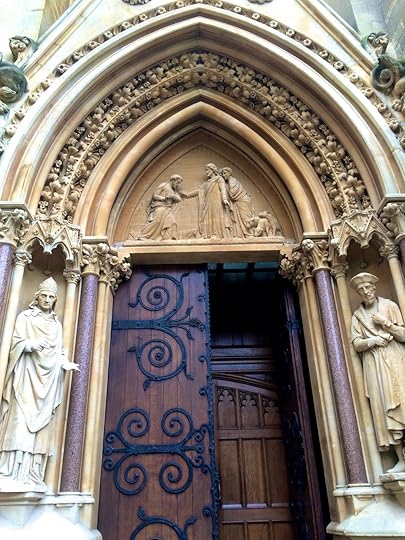
Exeter
While on Turl St., we also might peek into Exeter College (Tolkien's college, incidentally) if we were in an academic mood. It's a compact gem of a college hidden behind a massive old oak door in the golden-walled heart of the city. It's chapel was modelled after Sainte-Chapelle in Paris, and it proudly houses a Burne-Jones tapestry of the nativity amidst a splendor of stained glass windows and soaring lines very distinct from its sister Oxford college chapels. Its quad is a model of Oxford's ivied walls, neat gardens, and passageways to...who knows where. Narnia, perhaps? The fellow's garden, if open, is splendid, a serene space with a unique outlook onto the roof of the Rad Cam (a rather good place for picnics.
Lunch, and our afternoon ramble, would take us into the Covered Market, where we'd sit down to a traditional British hot lunch of pie and mash (and probably mushy peas with gravy) at Pieminster, a little shop in the heart of a market where butchers and grocers, bakers and cheesemakers still ply their lovely trades amidst local cafes and curiosity shops.
Thus sustained, we'd set out for our serious college touring, though we might have to choose between the mighty; Magdalene or Christ Church? Both are splendid, but let's choose Christ Church today and save Magdalene for the C.S. Lewisian morrow. Christ Church is one of the old grand dames of Oxford, the seat of the diocese' cathedral, with grounds stretching straight down to the river. It's classic Oxford college and we will take the full tour, marveling at the gigantic dining hall, the majestic quad under 'Tom Tower', the cathedral, the art galleries, and the pastoral serenity of a ramble in Christ Church meadows.
If we were dying for a pre-dinner cuppa, we might then walk out through the gardens back onto St. Aldate's St., where we'd order a nibble at Cafe Loco, an Alice in Wonderland themed tea shop with excellent scones and cakes. We might pop our heads in next door to the all-things-Alice curiosity shop as well as St. Philip's Books, a shop whose speciality stock is theology (from church fathers to the present) and Inklings studies of all kinds. We might end up with a first edition if we're not careful.
We'd have dinner either early or late, depending on our evening plans, but lets schedule in a concert at the Sheldonian, Oxford's iconic round theatre right next to the Bodleian. We might catch a programme of the Romantics, or an evening of Bach and cello, or if, like I once was, we're lucky, we might just get to see Marilynne Robinson read aloud from Lila; regardless, it will stir the soul and draw the spirit up to the very rafters. (And students can sit up near those gorgeous rafters for a mere 5 pound ticket.) As long as we're going for a formal evening, we might as well finish with a lovely meal in one of my two favorites of Oxford's finer establishments; either The Old Parsonage, a tiny inn of famed British hominess whose dining room boasts oil portraits that stare at down on the dark, velvet seats, a crackling fire, and excellent English fare, or Gee's, a glass housed restaurant that makes one feel one is dining in Lothlorien, amidst friendly trees and star-like lights hung from the rafters (Thomas said his steak there for our anniversary dinner was the best he'd ever had.)
With full stomachs and gladdened hearts, let us then wander home under the stars to collapse ino our B&B or college lodge beds to gain sleep for the morrow, on which we will retrace the steps of the Inklings...
Day Two: The Oxford of the InklingsFor our labours on this auspicious day, we should probably start with a full English breakfast (also, because though I prefer the tea and scone route, one should definitely experience this English tradition at least once). If our lodging was in a B&B, this would be the menu anyway. If not, we could head either to Brown's (a chain, but a classic English one that's been around forever and serves delicious British fare), or for a totally different vibe, The Turl Street Kitchen, an odd mix of Oxford class and organic hipster with frankly great, natural food. Full breakfasts at both would keep us going for hours. (The coffee's probably better at Turl, though.)
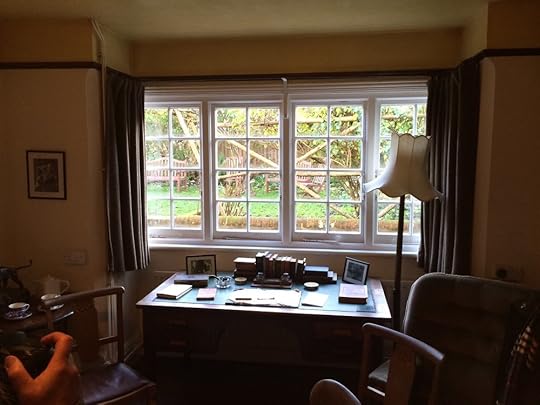
The Kilns
From there, let us ramble to The Kilns, Lewis' famed Oxford home, shared with his brother, nestled in a still countryish feeling corner of Headington in what used to be open countryside. We can catch a taxi or a bus, (and we'll definitely have booked our tour in advance), but once we are there, we can slow our pace to enter the workaday world of home and hearth that fed and warmed the mind behind Narnia. The presence of those famed stories lingers in every room as we explore the great old wardrobe, the kitchen still outfitted with the aga, the study with splendid collections of Lewisian books, Lewis' small bedroom and the tiny porch from which he gazed out upon the stars (and gained inspiration for his cosmic trilogy). We ask our tour guide loads of questions and finish by leaving the house for a ramble round the pond and nature reserve just behind The Kilns. Should we happen to feel like sitting in profound contemplation, or taking a space to journal, this presents an excellent opportunity. To close our Headington jaunt, we head to the local Anglican church where Lewis worshipped regularly, listening for the echoes of his voice at morning prayer as we admire the stained-glass 'Narnia window'.
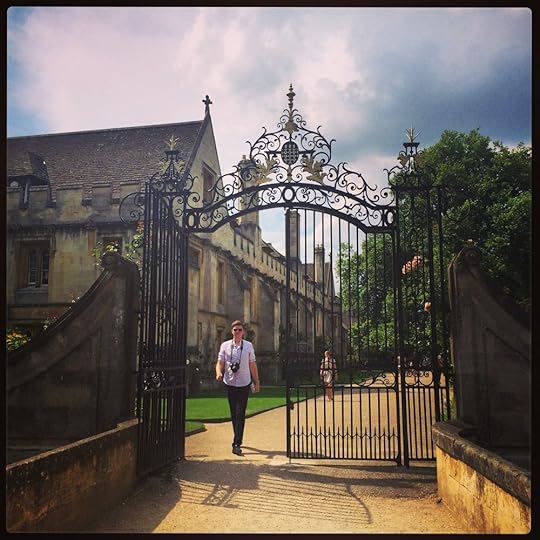
The gates to Addison's Walk
For lunch we'll head back to Oxford, only to be faced with a difficult choice. We can either wend our way to the lively Gloucester Green market (on Wednesdays, Thursdays, and Saturdays), where the cuisines of the world gather in a stunning display of little booths whose lunchtime delicacies are all priced at 5 pounds or less (I highly recommend the Greek). Or, we might find a shop on High Street where we can stock up for a little picnic (we still have afternoon tea to face!); a baguette, some cheese, a bit of fresh fruit, some cider, just enough to sustain us for the next adventure: our ramble round Magdalene College, Lewis' own academic haunt where he hammered wisdom into the heads of students and had long talks with Tolkien and the other brilliant fellows of the Inklings. This is probably my favorite Oxford college; every corner is rich in carved beauty, the cloisters are dappled with quiet light, the chapel is both awe-full and intimate. We would note the red geraniums in the windows of 'New Building', marking the rooms Lewis used for tutorials and friends. And we'd got for a matchless wander down Addison's Walk, the old path shaded by great trees under whose windy boughs Lewis and Tolkien had the talk about myth shifted Lewis' heart toward the possibility of Christ as the living, 'true myth' behind all our great stories. If we turn to the left as we go in the gate, we'll see a little bridge and stone wall before the first turn with a round plaque inscribed with the words of Lewis' poem What the Bird Said Early in the Year. We would definitely stop to savor it and see what the birds were saying then.
Having walked off lunch in the dappled realms of Magdalene, we would go in search of high tea; though this is not particularly Lewisian, it is very English (which Lewis decidedly was), so I would include it as a necessary element to an Oxford visit. The Randolph is always a possibility though I've never tried it myself. It is a splurge of a thing, with miles of food and a price to match, but it is the classic Oxford high tea, and you are served in high wingback chairs under tall windows, with roses leaning gracefully over your china teacup. The Old Parsonage perhaps my best beloved, the elegant, intimate spot (with excellent sandwiches and tea in pewter pots) to which one I have taken many friends to before. For this moment though, we'll wander across the street from the Randolph and seat ourselves at the rooftop cafe of the Ashmolean Museum. With a bird's eye view of the city and the near blue hills and a decent high tea, we can savor the scones and sandwiches, then head down for a wander through Oxford's art and history (the museum is free).
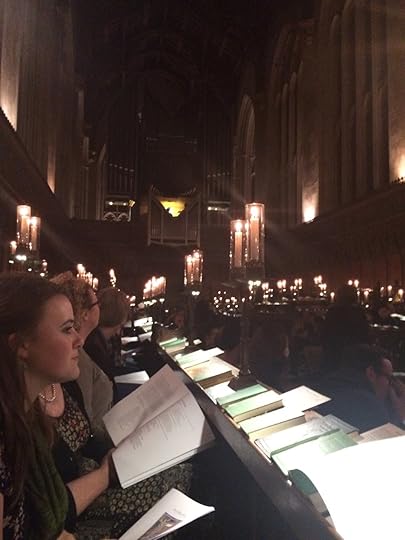
Sated with tea, let us set off for that splendid Oxford tradition, not to be missed, a college evensong. Magdalene and Merton are my favorites, though New College and Keble (whose side chapel houses William Holman Hunt's magnificent painting The Light of the World) are splendid as well. New and Magdalene boast their own famed boy's choirs, while Merton has a matching marvel of a girl's choir. The music, the Magnifcants and anthems, the chanted psalms by candlelight, are an experience integral to life in Oxford, something still precious to me however many times I've attended.
We'll finish just in time to high tail it to The Eagle and Child pub, better known as 'The Bird 'n Baby', famed as the gathering place of the Inklings. I'd recommend the fish 'n chips, and we could even eat in The Rabbit Room, the actual space in which the Inklings met, nicely outfitted with Lewisian portraits and quotes lest you miss the fact. In keeping with tradition, we shall debate some aspect of Norse mythology, or one of us might also be forced to read aloud from his or her latest written work.
If its a Tuesday (and if I'm planning, it will be), we'll then head next door to the beautiful Pusey House, (whose chapel, history, and marvellous Tractarian library deserve an exploration of their own) whose upper Hood Room hosts the weekly meeting of the Oxford University C.S. Lewis Society. Here, we will be treated to a paper or contemplation on some aspect of literature, history, art, or philosophy connected with the work of the evenings. There will be time for questions, and a good bit of lively discussion, and the conversation might move just across the street to the Lamb and Flag pub, whose selection of drinks is, I am told, quite excellent, and which some of the Inklings actually preferred. There, we can chat imagination into the wee sma's.
Or, if we feel contemplative and quiet in heart after a day of such beauty, we can just head down the steps from the Hood Room into the hushed, shadowed corridors of the Pusey Chapel where a candlelit, chanted compline is waiting to ready us for grateful, sated sleep.
Either way, under the golden lamps of the cobbled, Oxford streets, we'll ramble back to our beds, to dream of the next adventures...
Links & ListsCafes and Restaurants (because, obviously, this is the most important information - I've added a few extras):
Vaults and Gardens
The Missing Bean
Turl Street Kitchen
Pieminster
Cafe Loco
The Old Parsonage
Gee's
Brown's
The Natural Bread Company
Tea at the Randolph
The Rooftop Cafe at the Ashmolean
Pierre Victoire
The Eagle & Child
The Lamb and Flag
Oxford Colleges:
Exeter College
Christ Church College
Magdalene College
Merton College
New College
Keble College
Oxford Classic Destinations:
The Bodleian Library
University Church
Blackwell's Bookshop
The Covered Market
Christ Church Meadows
The Sheldonian
The Ashmolean
The Natural History Museum
Oxford Inklings Destinations:
The Kilns
Magdalene College
Pusey House
C.S. Lewis Society
Holy Trinity, Headington
The Eagle & Child
Tolkien's Grave
at Wolvercote Cemetery
Shopping:
Scriptum
St. Philip's Books
Oxfam Bookshops
Walter's of Turl Street
Aspire
Covered Market
Blackwell's Art and Poster Shop
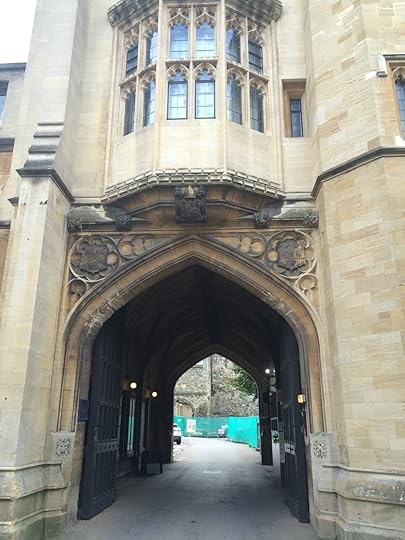
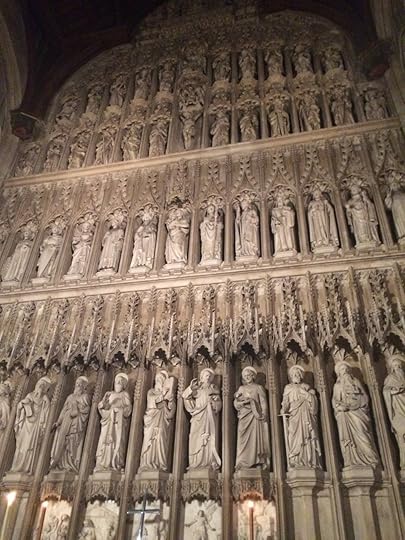
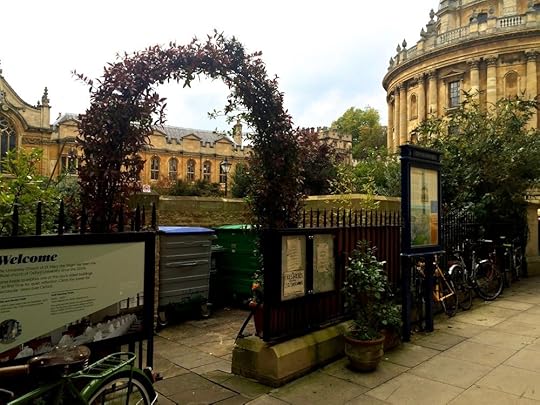
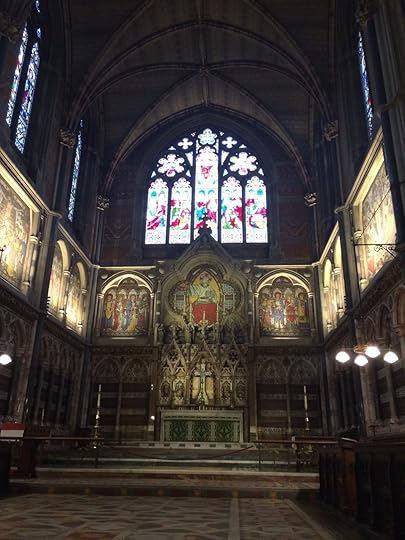

December 6, 2017
Advent with Mara
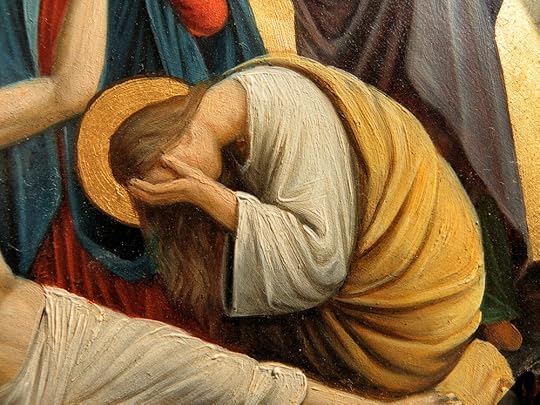
I started a post this morning based on a single epiphany that came to me about my need to take a day of rest. I soon found, however, that the one realisation was like the first room in a treasure cave. What I thought was a single chamber is leading me on to other understandings that open, space upon space, within me and I think I'd better excavate a bit further before I write about it here.
So I'll revisit Mara with you today instead, George MacDonald's gracious woman and strangely attractive woman of sorrow. I wrote last year about the fact that a real keeping of Advent is in many ways, an invitation to walk with her, confronting the gentle presence of our deepest yearning, our keenest need for redemption. I've thought a lot about sorrow this year. I've known some in my own life, I've seen it burn deeply into the lives of people I love. I've seen it in the wider world, as somehow the fallenness of the human condition seemed to shove in even harder than usual upon my consciousness. And I've wrestled with it in my faith as I spent the last six months of my studies wrestling through a paper examining where God is in sorrow and how he is present amidst it.
I could study this for the rest of my life (and plan to) because I have come to a fundamental realization: the way we deal with what is broken in our life shapes every aspect of our faith. It's in the ground of grief and loneliness, frustration and desire that we come to our fundamental conclusions about who God is and what it means that he comes to save us. I think what I have begun to grasp is the way that to journey with Mara is to walk toward a joy that cannot be touched by any brokenness in the world, but we have to go through her house to get there...
See what you think:
I visited the chapel and house where I worked last year and had a good laugh last week. In the corner of the dining room was a tall and resplendent Christmas tree in green and gold glory. Hung prominently from its top branch however, was a hand-painted sign of large black letters instructing all viewers that this was not a Christmas tree, but an 'ADVENT TREE'. The presence of a tree was the concession of the house Principal, who heartily advocates a full observance of the Advent season that includes delaying the decking of halls and bellowing of carols until the actual days of Christmas. While I am annually amused by the good-humoured tug-of-war between him and the chapel interns, I am equally halted and somewhat challenged by this concept of keeping a season of waiting specifically in preparation for what, from childhood, I've felt to be the highest day of the year.
Why Advent? Why wait? Why delay fun and colour and good food? Why this season of sobriety and even penitence (if you're doing it like early Christians) when the whole point is that Christ came to start the party up again and heal the world? It's my easy and initial response.
But I've been studying Lady Mara this week. She's a character in George MacDonald's last novel, one of strange and compelling beauty, called Lilith. Daughter of Eve, mother of all the living, she embodies the sorrow of the world and the way that grief helps us to honesty - about ourselves and our need. In MacDonald's story, all people must eventually dwell in her house, tasting the bitterness of their fallen humanity.
But Lady Mara's is a healing, gracious sorrow and those who dwell with her come to know themselves truly, to understand their need for healing. Her gentle hands, her simple bread, and cold water work as agents to drive away the self-deceptions and lies of pride and envy and sin that blind the human heart, driving it to hatred and destruction. Mara is sorrow, but Mara is healing because the sorrow she nourishes in her guests is that of repentance and that gives way to hope. Her sweet, wise grief teaches her guests the deepest kind of hope because it points them to the Father who can (and will) make them whole.
I begin to think that Advent is a sojourn in Mara's house, a season in which I let hush and longing teach me once more to yearn for the coming of Christ.
One of the most beautiful things said at my wedding was by a friend who spoke of the waiting for love to come. She described how she had watched me wait for God to bring Thomas for many years, and she spoke of her own longing for love. 'But I've been thinking about waiting,' she said, 'and I've realised that though Thomas is an incredible gift, you're still waiting. Because we're all waiting. We'll always be waiting for Jesus to return. Now, you have someone to wait with.'
I think that waiting, even yearning is central to Christian identity. We're supposed to be the ones who recognise that the party hasn't quite begun. We're the ones who know that wealth and ease aren't the answer to the sorrowing world. We're the ones who can tell the difference between glitz and grace. We're the ones who know that no amount of stuff given, or things collected can satisfy the hunger of our hearts to be forgiven, to be redeemed and made one with Love.
But sometimes even we need Advent to remind us of our central identity as those who hunger for Christ, to realise that he alone is the end of every yearning of our hearts. I know I need the sojourn in Mara's Advent house because I forget this. I long for many other things; friendship and justice for the oppressed and a little more money and that one piece of furniture for the house and healing for my friends whose hearts or bodies are broken. I long for circumstance to change, suffering to end, for all my wants to be granted.
And of course, I live in a world that doesn't really like to sit much with sorrow. I've been so struck by what one of my teachers here calls our modern and total lack of 'liturgies for death', rituals by which to navigate bereavement and suffering, because we want to put it off as long as possible and pretend it won't happen.
But Advent isn't a season in which we force ourselves to be sad, it's the season in which we come to grips with how grieved we really are. In Advent we remember that we are still waiting. Christmas is when we remember that Christ has come to defeat death and 'overcome the world'. But Advent is when we remember that we are still in that world. We are children of God, inheritors of glory, and we still get cancer, we still fight wars, we still suffer loneliness, and death. Advent is when have the chance to stop running and be still, the season that allows us to recognise our need for Christ's final coming to right the suffering of children, the loneliness of the poor and forgotten, the grief of the sick, the darkness crouched in our own hearts.
As I sit in Mara's gentle presence during the Advent season, facing my own yearning for friends to be healed or love to be restored or even just for a little more ease to life, my soul is widened by quiet, stilled by honesty, made spacious with recognition of my need. I become a great dwelling space waiting to be lit by Love. Only in that waiting, that ready hunger, that yearning, can I then receive the gift of Christmas to the full. Christmas, when it does come is then both my joy in the present, my wonder at the shockingly gracious, Holy Spirit presence of Christ in me, glory glimpsed in the keeping of this feast where all good things begin again. But it is also a foretaste of the triumph, the innocent splendour, the crashing joy of Christ's final coming when all is renewed. Advent so shapes my heart that my celebration of Christmas, as it arrives, is a real moment of living eternity in time, glimpsing the new heavens and earth in its beauty.
But the way to that glory is through Mara's house. I keep it in a quiet way. I still have my candles and (this year) a little Charlie Brown tree, and sweet music for company, and of course, we'll keep some Christmas festivity amidst the quiet too. But I use this season to reflect. To read the searching of other writer's hearts. To list my need, and articulate my hope. I let Mara sit with me and I find that her touch is kind. However you keep this Advent season, may Mara's company, in whatever form, be not bitter, but sweet. Her touch the one that teaches you afresh to hope and readies your heart for the radiant joy of Christmas
November 27, 2017
Advent Stars: My Favorite Books & Music for the Journey
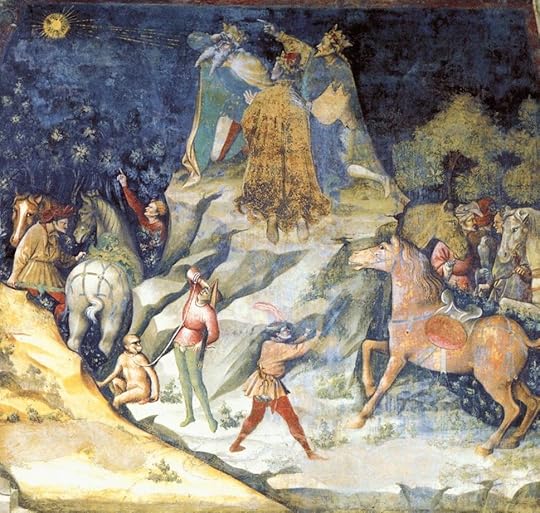
The Appearance of the Star, c. 1412, Fresco, Basilica di San Petronio, Bologna
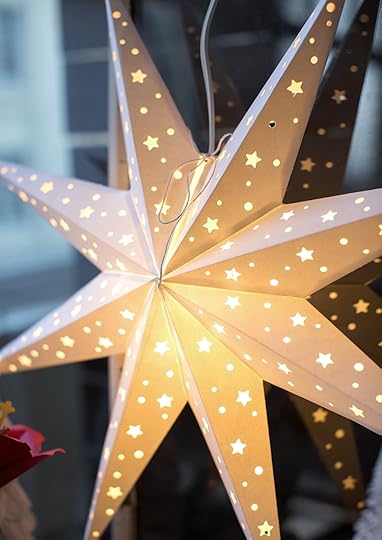
Come this Sunday, when the light goes darkling and the first Advent antiphons are humming across the street at the service for evening prayer, I get to hang our Advent star in the front window of our home. I'm quite excited about this. It's a new tradition for me, one I've been waiting to practice ever since I saw a similar star glimmering in the window of my Dutch in-laws the first Christmas season I went to visit. I saw quite a few such stars shining in the windows of the homes we passed in evening walks round the city, and I got curious. The star, I was told, symbolizes an Advent journey in sympathy with the Magi. It signifies that those in the house where it gleams also journey in search of Christ. How beautiful.
I think I will greatly enjoy its companionship during my morning quiet times because this Sunday, the first of Advent, also marks the day I will delve into my pile of Advent books, music, and images. I love Advent. I've loved it from childhood, when my family and I would gather weekly round the Advent wreath we had decked in old pinecones and berries and candles, as we read aloud from Advent devotionals rich in Scripture and prophecy. I thrilled even then to the promise that 'those who walked in darkness would see a great light'. I still do, and find my wonder furthered by the Advent writing I have discovered as an adult. What I so value is the way that the writers and artists, musicians and friends below draw me on a journey, one that helps me to acknowledge and direct my own yearning, my hunger for heaven, one that draws me as a pilgrim into the celebration of Christmas in such a way that the feasting and gifts, the music and color and fellowship actually seem to shimmer with a taste of the great good ending on its way to heal and renew our world.
Here in England, Advent is a serious thing. Some of my friends (my husband may just be included) would rather not sing a carol or deck the halls till Christmas day (though I will definitely be doing some Advent decking of this little house). They wait for these delights, not in a legalistic denial but in a hope that has been ripened by weeks of watching and walking that leads them to truly savour the fulness of Christmas in its wonder, its feasting, its mystery. You need companions for such a journey though. I have always found Advent richer in the company of wise writers. So I offer you my booklist (and a much shorter music list), a wise and merry gathering of literary and musical companions whose presence has made my Advent way star-bright for many years:
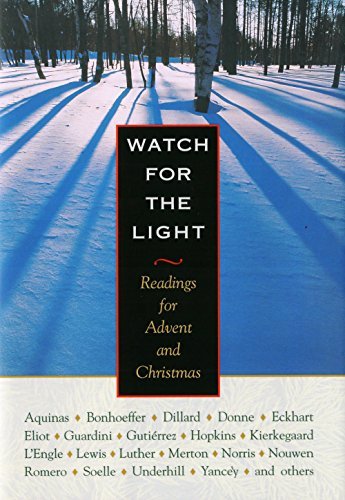
I first found this years back when one of its most arresting passages was quoted in a daily Advent devotional I received by email. Having found these words - But round about the horizon the eternal realities stand silent in their age-old longing. There shines on them already the first mild light of the radiant fullfillment to come. From afar sound the first notes as of pipes and voices - I hungered for more of the same. And my hunt led me back to this collection of stirring Advent contemplations, one a day through Epiphany. For a book that sets you in the strong, clear light of Advent as a season of preparation, even of penitence, this is the best. The readings here aren't meant to evoke nostalgia or even comfort (yet), but to help a reader come wide awake, to take account, to consider what it is she hopes and what the coming of that hope means to the here and now. For 'preparing a way for the Lord' in my heart in this season, this book has long been a brave and resourceful companion.
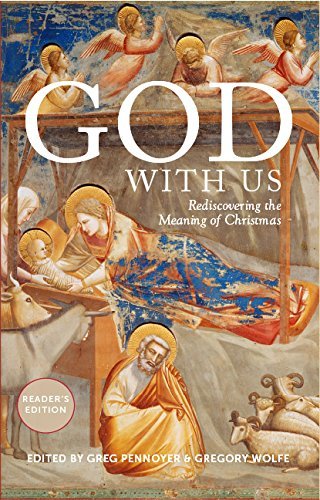
God with Us, edited by Greg Pennoyer and Gregory Wolfe
This book is a luminous companion, prepared by the faithful and creative minds behind the literary Image Journal. This book offers carefully selected pieces of art, daily Scripture readings and prayers, and daily Advent devotionals, each week written by a different Christian writer or pastor. This is an ideal Advent devotional book as it offers a compact but rich contemplation, short enough for a snatched quiet time, but rich enough in image and idea to shape one's thoughts for the whole day. It's a world of a book, a twilit, contemplative, Advent world.
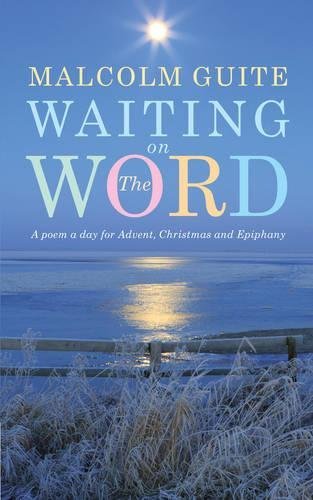
Waiting on the Word, by Malcolm Guite
Poetry, as Owen Barfield insightfully claimed, can bring about 'a felt change of consciousness', a process that I think is at the heart of Advent celebrations and one that is masterfully crafted for a reader in this collection of Advent poems by Malcolm Guite. Guite's Lent collection has been my companion for the past two years, and the Advent one is a new favourite. Guite doesn't just give you a poem to read, he guides you into the heart of the woven words, words that can truly shift your sight from boredom to wonder, from discontent to thanks, from discouragement to a newly-kindled hope. Combined with his own radiant sonnets, this book is a gift of lyrical beauty and devotional quiet.
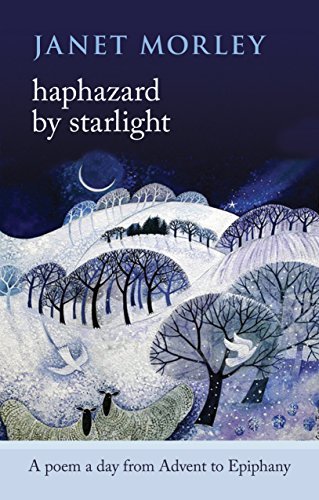
Haphazard by Starlight by Janet Morley
This is a similar collection to Guite's, one I have just discovered. It comes highly recommended by my tutor here at Oxford, and we are using some of the poems listed within for an Advent poetry discussion group. I love the way this book introduces me to poems I would never have discovered on my own. And, I mean, the title. Splendid thing.
Advent with Evelyn Underhill, compiled and edited by Christopher Webber
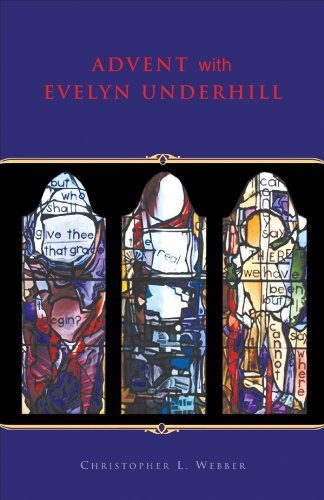
I make no secret of my love for Evelyn Underhill. Her confident, motherly voice in writing, not to mention her excellent scholarship on contemplative prayer and Christian mysticism, has shaped my devotional life in countless ways. This collection of daily Advent readings has been culled from her many devotional works. These are short, accessible, powerful readings you could peruse in a spare 5-minutes. I've taken this book along to the airport to read in the waiting area and the pithy, wondrous tone always startles my soul awake even in the midst airport craze.
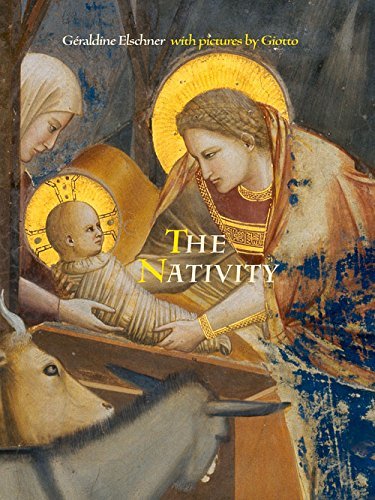
The Nativity, text to Geraldine Eischner, art by Giotto
I grew up with a book very similar to this. (If you can find the version with Madeleine L'Engle's commentary, do! It is out of print.) From childhood, I was fascinated by Giotto's cycle of paintings around the Advent and Christmas story, and I have encountered few pieces of art that so capture the ache and wonder, the pain and passion of Christ's coming into this world. I think that art arrests the mind in a different way than words, allowing our eyes a fixed contemplation in which our imaginations 'see' the story of Christ afresh.
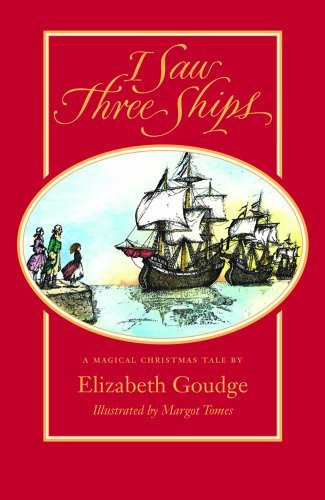
I Saw Three Ships by Elizabeth Goudge
I only grow in my love of good short stories. This one, in a simple, tightly woven little tale manages to tug hard at every hopestring in your heart, combine childhood Christmas delight with grown-up yearning, and bring it all to an end that, I must admit, brought tears to my eyes the first time I read it. It's a gem of a story, an emerald gem, bright with all the life of Christmas if you ask me.
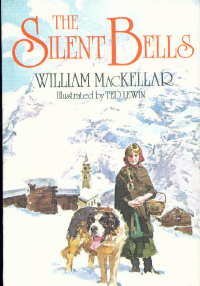
The Silent Bells by William MacKellar
A lovely friend sent me this book last year and it has joined my stack of favorite Advent short stories. Set in the Swiss Alps, named for a set of cathedral bells that have never been heard but are prohesied to ring with the coming of a certain gift at the Christmas Eve service, the book is the tale of little girl's generous heart. It's a dear book.
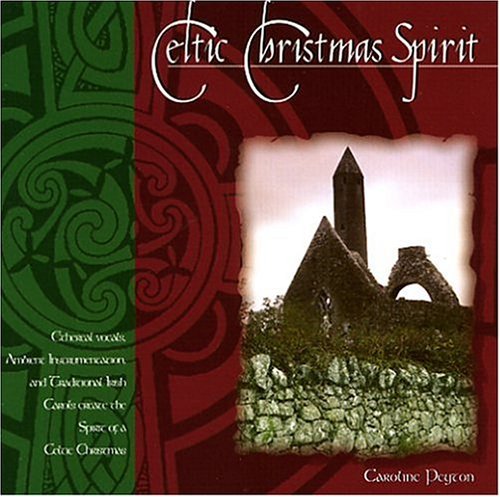
Celtic Christmas Spirit by Caroline Peyton
While this isn't strictly 'Advent' music, I find the haunting quality and some of the more ancient carols in this collection help me stand aside from commercial, contemporary Christmas and engage with Advent. I haven't found anything quite like this collection of Celtic Christmas music. Granted, my taste for the lilting and haunting runs strong, but there is a wonder and glory in this that I savour.
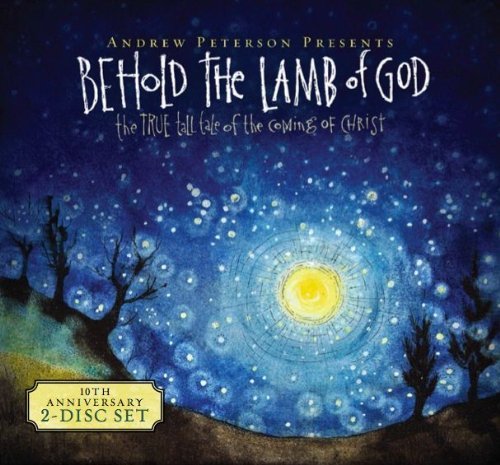
Behold the Lamb of God, by Andrew Peterson
Ah, this is an excellent journey of music, one that draws you into the high drama of angels and the sweet, low folksy drama of the stable in songs you will find yourself singing under your breath throughout the season. Andrew Peterson's storytelling in song, his grasp of the storied nature of faith, has made his music among my favourite for many years, but this album, inviting you to 'behold the Lamb of God' is one that has enriched my Advent journey in countless ways.
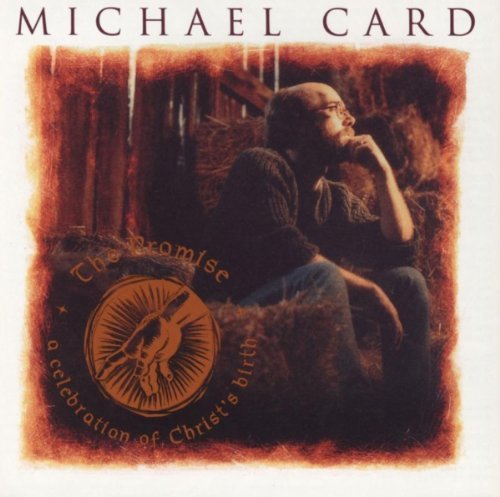
The Promise: A Celebration of Christ's Birth, by Michael Card
I grew up on these sweet, sweeping, and to me, rather haunting contemplations on the coming of the Christ child. Michael Card's music has companioned me lifelong, and I love it for its scriptural depth, its engagement with the whole of the Bible's narrative, combined with its richly imaginative lyrics. From the prophetic and dramatic tones of the opening song The Promise, this album progresses through the Christmas story through the eyes of the different people caught up in its glory. Whether in Mary's lullaby-like tune and aching wonder, or Joseph's awed contemplation (how can it be?), I find this album touches my heart with a quieted sense of worship.
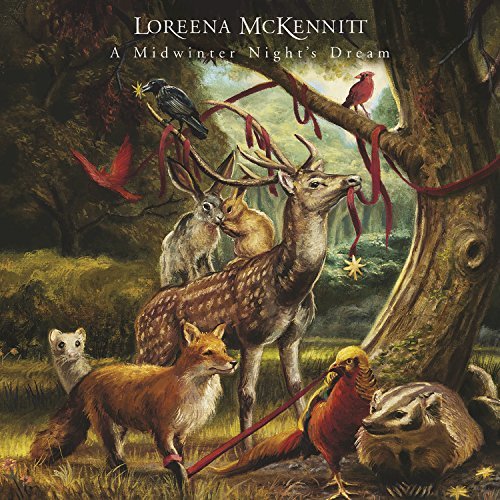
Midwinter Night's Dream by Loreena McKennit.
Loreena's music has been beloved of my heart since I was a small child and heard her haunting setting to tune of a Yeats poem. The lilting quality of her voice, her love for the Celtic, her re-rendering of the old folk tunes I always wished I could discover make her a musical companion for all seasons. But I especially savor this collection and play it often in the Advent season, a gathering of more traditional hymns, carols, and yuletide songs whose lyric and melody evoke a feeling of wonder for me.
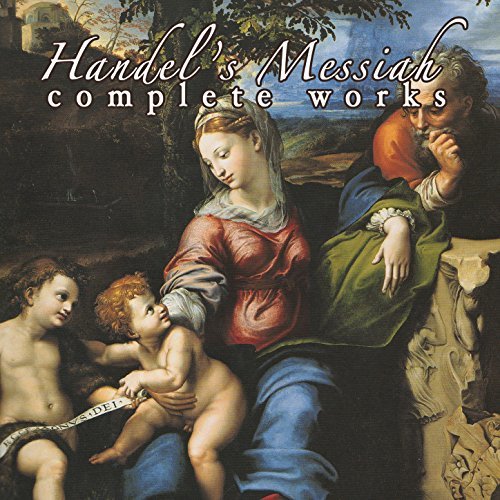
Handel's Messiah, by, well Handel.
I have listened to this masterpiece on repeat for the past few weeks (I need it!), but this marvelous creation is always an accompaniment to my Advent season. This is a world of a work, an epic of storied music recounting the whole history of Christ's coming, leading us prophecy by prophecy by promise, in some of the most glorious choral music the world has known, into the hallelujah heart of what Christmas truly means. Listen to this repeatedly, let the story of Scripture soak into your memory and heart and tell me if your mind isn't formed a little more to wonder each day.
Random Gems
In addition to the faithful companion books and albums listed above, I discovered a few wonderful resources online, as well as a few marevlous single songs that enchant and captivate my mind in this season. Among them are:
Biola's Advent Project Blog: Daily contemplations with music and art. Highly recommended by my sister.
Hills of the North Rejoice - an Advent hymn I'd never heard until I arrived in England. Listen all the way through. Listen to each verse. It's marvelous.
The Wexford Carol as recorded by Alison Krauss and Yo Yo Ma. Oh my goodness, if you have never watched this joyous recording of the song by musicians just revelling in the harmony of their gifts, you really must. I played this to my belly today. I think the baby liked it.
This enchanting image of the Annunciation.
And this sweet, folksy, joyous image of Mary and Elizabeth, with the saving secret of God himself leaping up in their wombs.

Journey of the Magi, mosaic in the Basilica Sant’Apollinare Nuovo in Ravenna, c. 6th century
November 23, 2017
Happy Thanksgiving! (With a Wendell Berry Quote)
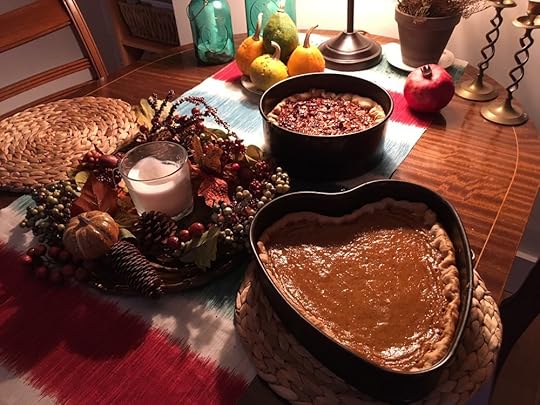
We are up to our elbows in Thanksgiving preparation in my little cottage. Joy is here for a visit and we are chopping onions (and crying), baking superb (if we do say so ourselves) pies, and doing important things in between like watching Lark Rise to Candleford episodes and painting our nails a festive crimson.
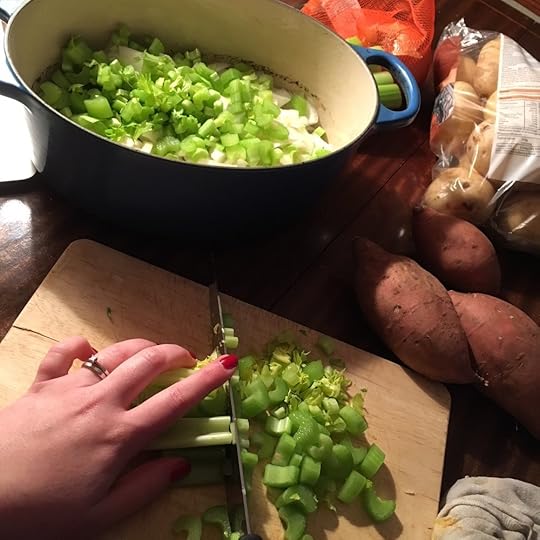
Tonight, round the table with a few English and American friends, we'll celebrate the things we're thankful for, read some Scripture together, and pray. There is so much for which my heart wells up in gratitude this year, not least the fact that there is another with us at the table, if yet unseen! Her presence is such grace.
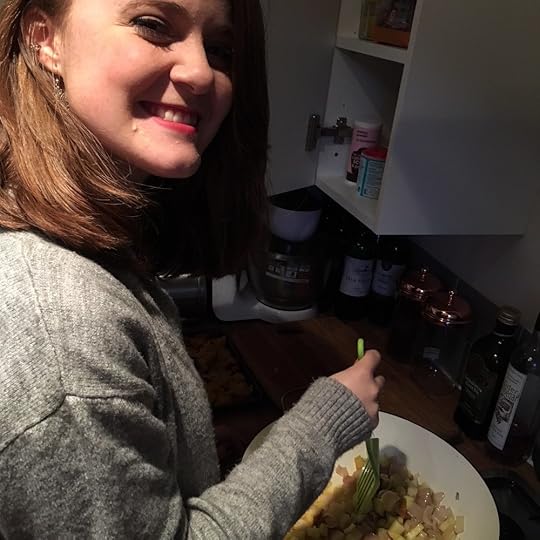
As part of this evening I'll read aloud the following passage from a Wendell Berry novel I love, called Remembering. It's hard to give enough context, but the novel traces a middle aged farmer's journey from a place of spiritual desolation and tragedy, as he is drawn back into fellowship and a sense of , not by his own effort, but by the chosen faith and fierce love of those who have gone before him, especially his wife. When I think of gratitude, it is this passage that often comes to mind:
He takes his suitcase out of the cab and walks to the house and across the back porch, through the screen door, and into the kitchen, a pretty room, bright and quiet. He loves this quiet and he stands still in it, breathing it in. There is a note to him on the table; after looking at it for a minute of two, he goes over and reads it:
-You're back?
-Mart called. They have lots of beans.
-We've gone to pick and visit.
-Love, F.
With her note in his hand, standing in her place, in her absence, he feels the strong quietness with which she has cared for him all through his grief and his anger. He feels her justice, her great dignity in her suffering of him. He feels around him a blessedness that he has lived in, in his anger, and did not know. He is walking now, from room to room, breathing in the smell of the life that the two of them have made, and that she has kept. He walks from room to room, entering each as for the first time, leaving it as if forever. And he says over and over to himself, "I am blessed. I am blessed."
I get tears in my eyes just typing that out (I know, I know, I'm so pregnant). That rich evocation of him, standing in a blessedness he did not even know, then finally grasping it. The breathless grace of it. This is how I feel about God's love, about my marriage, about my precious family, about this coming baby.
As you bustle around in your own home, amidst your own celebration, I wish so heartily that you too will have a moment of that knowledge, of love standing around you. May you know yourself blessed, blessed.
Have a marvelous feast!
